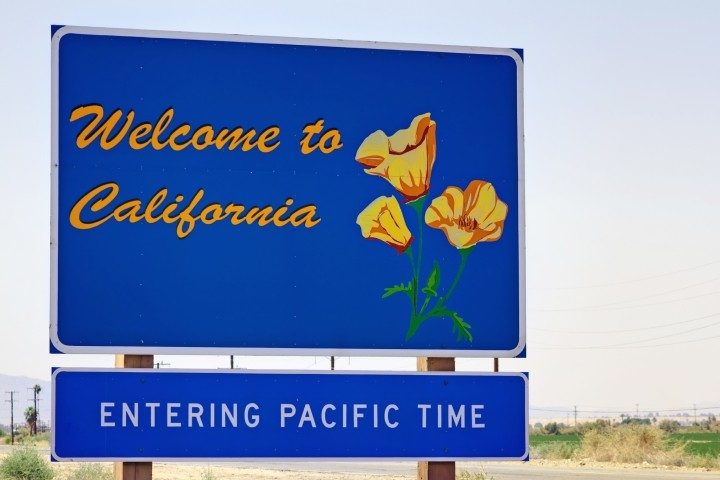
California businesses that fail to provide “gender-neutral” selections of toys and childcare products will face fines of up to $500 under a law set to take effect on January 1.
Passed by the California Legislature and signed by Governor Gavin Newsom in 2021, Assembly Bill 1084 (AB 1084) requires California retailers with at least 500 employees throughout the state to “maintain a gender neutral section … in which a reasonable selection of the [childcare] items and toys for children that it sells shall be displayed, regardless of whether they have been traditionally marketed for either girls or for boys.”
The law defines a “childcare item” as “any product designed or intended by the manufacturer to facilitate sleep, relaxation, or the feeding of children, or to help children with sucking or teething.” A “toy,” meanwhile, is “a product designed or intended by the manufacturer to be used by children when they play.” The law only applies to products for children aged 12 and under.
Lawmakers, naturally, claim to be acting on consumers’ behalf. The act says that displaying similar items together will allow consumers to comparison-shop more easily. Furthermore, “Keeping similar items that are traditionally marketed either for girls or for boys separated … incorrectly implies that their use by one gender is inappropriate.” Apparently, in California, the proper role of government is to make sure that only the politically correct view is implied, if not blatantly promoted.
“We need to stop stigmatizing what’s acceptable for certain genders and just let kids be kids,” said Democratic Assemblyman Evan Low, who introduced the legislation.
“Part of it is to make sure if you’re a young girl that you can find a police car, fire truck, a periodic table or a dinosaur,” he explained. “And then similarly, if you’re a boy, if you’re more artistic and want to play with glitter, why not? Why should you feel the stigma of saying, ‘Oh, this should be shamed,’ and going to a different location?”
In a statement to the assembly’s judiciary committee, Low wrote, “The segregation of toys by a social construct of what is appropriate for which gender is the antithesis of modern thinking.”
For a state that is rapidly losing businesses thanks to taxes and regulations, why did its leaders think another business mandate — one solely designed to placate gender-benders — was a good idea?
At the time of the law’s passage — it took three attempts in as many years to convince enough legislators to approve it — Low claimed to have been inspired to introduce AB 1084 by one of two events (or perhaps both).
He told the Sacramento Bee that Target’s 2015 decision to create some gender-neutral sections led him to propose AB 1084. That, however, would suggest that the market was already solving the alleged problem of gender-specific retailing, making Low’s bill unnecessary. (Of course, Target would later face a backlash after overdoing the LGBT marketing, so perhaps consumers aren’t really as thrilled with wokeism as Low and his fellow progressives are.)
Low’s other alleged inspiration for AB 1084 was an incident in which the 10-year-old daughter of one of his staffers “asked her mom while shopping why certain things in a store were ‘off limits’ to her because she was a girl, but would be fine if she was a boy,” Low told The Associated Press. “Thankfully, my colleagues recognized the pure intentions of this bill and the need to let kids be kids.” In other words, a 10-year-old’s curiosity is now cause for further interference in property rights in California.
Not everyone in Sacramento was in favor of forcing gender ideology on retailers. Then-state Senator Melissa Melendez, a Republican, voted against the bill, saying, “Unlike [Low], I actually have children, five of them to be exact, and I can tell you [gender-segregated product displays are] very convenient for parents. I don’t think parents need the government to step in and tell them how they should shop for their children.”
Conservative and business groups opposed the measure, telling The Washington Post “that business owners have it hard enough and should not be burdened with another government requirement that impedes their abilities to adapt to the free market.”
“Retail stores are very attuned to the supply and demand of their merchandise, and they are very aware of the clientele they serve,” wrote the conservative Capitol Resource Institute. “We do not believe it is the role of the California Legislature to overstep the natural process of the free market.”
The California Family Council pointed out that one of the lobbyists for AB 1084 was “gender-fluid clothing entrepreneur Rob Smith,” who was dissatisfied with major retailers’ displays of his products.
“You have to give Rob Smith credit; he’s found quite an audacious marketing plan in asking Sacramento to force California retailers to make room for his products,” said the group’s president, Jonathan Keller. “But activists and state legislators have no right to force retailers to espouse government-approved messages about gender. It’s a violation of free speech and it’s just plain wrong.”
Even the Los Angeles Times opposed AB 1084, calling it “nannyish overreach.” “Legislators,” it opined, “should ask themselves whether their personal values should trump those of private companies and consumers who are able to make their own decisions.”
Legislators — and Newsom — answered that question in the affirmative. Now they will watch their tax revenues fall as even more businesses abandon the Golden-fleecing State.



